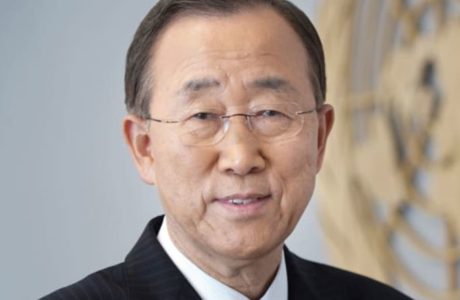Institution: Former UN Secretary-General
W
U
- University of Delaware
- United Nations
- United Cities and Local Governments
- University of Pennsylvania
- Università di Macerata
- University of Oxford
- United Nations Development Programme
- UN Statistics Division
- UNESCO Information for All Programme
- United Nations Environment Programme
- University of Queensland
- Universidade Estadual do Rio de Janeiro (Federal Rural University of Rio de Janeiro)
- University of the Philippines
- University of California - Irvine
- University of Victoria
- UN-Habitat
- University of Cape Town
- University of Exeter
- United Nations Economic Commission for Africa
- UNICEF
- Università degli Studi di Siena
- Università degli Studi di Napoli Federico II
- Université de Sousse
- United Technologies Research Center
- Università degli Studi di Tuscia
- University of Jordan
- University of California - San Francisco
- UNESCO World Water Assessment Programme (WWAP)
- University of Wollongong
- UNU-WIDER
- Unilever
- University of Gothenburg
- UNESCO
- United Nations Economic Commission for Europe
- UNESCO Global Network of Facilitators
- University of South Africa
- University of Antwerp
- University of Music Franz Liszt Weimar
- UNU-CRIS
I
- International Union for the Conservation of Nature
- International Monetary Fund
- International Institute for Applied Systems Analysis
- Institute for Sustainable Development and International Relations
- Indian Institute for Human Settlements
- International Telecommunication Union
- International Ocean Institute
- India Federation of Self Employed Women's Association
- International Civil Society Action Network
- International Institute for Environmental Development
- ICLEI - Local Governments for Sustainability
- International Labour Organization
- IHE Delft
- International Fertilizer Association
- Islamic Development Bank Institute (IsDBI)
- Istanbul International Center for Private Sector in Development (IICPSD)
- International Labour Organization (ILO)
- International Social Security Association
S
A
- Ain Shams University
- American University
- Athens University of Economics and Business
- African Center for Cities
- Association of Caribbean Energy Specialists
- All India Institutes of Medical Sciences
- Australian Resilience Centre
- Alliance for Global Water Adaptation
- Academy of Korean Studies
- Ahmedabad University
M
H
E
F
- Federal Government of Ghana
- Fundação Getulio Vargas
- Facultad Latinoamericana de Ciencias Sociales
- Federal Government of Chile
- Federal Government of the United States of America
- Foundation for the Global Compact
- FAS - Fundação Amazonas Sustentável (Amazonas Sustainable Foundation)
- Former President of Colombia
- Former Prime Minister of Norway
- Former UN Secretary-General
- French High Council for the Financing of Social Protection
C
N
- New School
- Natural Resource Governance Institute
- National Disaster Management Authority (India)
- National Research University Higher School of Economics
- National Wildlife Federation
- New York University
- Northumbria University
- National Autonomous University of Mexico
- National Institute of Archaeology and Heritage Sciences of Morocco
G
K
D
P
B

Ban Ki-moon
Ban Ki-moon is a South Korean diplomat who was the eighth Secretary-General of the United Nations from January 2007 to December 2016. Before becoming Secretary-General, Mr. Ban was a career diplomat in South Korea’s Ministry of Foreign Affairs and in the United Nations.
As the eighth Secretary-General of the United Nations Ban Ki-moon´s priorities were to mobilize world leaders around a set of new global challenges, from climate change and economic upheaval to pandemics and increasing pressures involving food, energy and water. He was a bridge-builder, giving a voice to the world’s poorest and most vulnerable people, and strengthening the Organization itself.
Mr. Ban held office from on 1 January 2007 to 31 December 2016. On 21 June 2011, he was unanimously re-elected by the General Assembly for a second mandate.
One of the Secretary-General’s first major initiatives was the 2007 Climate Change Summit, followed by extensive diplomatic efforts that have helped put the issue at the forefront of the global agenda. At the height of the food, energy and economic crises in 2008, the Secretary-General successfully appealed to the G20 for a $1 trillion financing package for developing countries. Under his leadership in 2015 countries adopted a set of 17 Sustainable Development Goals (SDGs) to end poverty, protect the planet and ensure prosperity for all as part of a new sustainable development agenda. Each goal has specific targets to be achieved until 2030 and to leave no one behind.